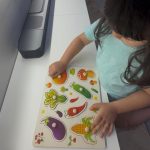Autism and Mathematics: Made for Each Other
A Unique Connection Between Autism and Mathematical Ability
Autism spectrum disorders, characterized in part by deficits in communication and underdeveloped social skills, have caught the attention of researchers who propose that these traits might enable autistic individuals to display exceptional mathematical abilities.
Two Approaches to Problem Solving
Scientists believe the brain uses two general approaches to solving problems: empathic and systematic thinking.
- Empathic thinking refers to identifying problems and responding to them with appropriate emotional reactions.
- Systematic thinking involves analyzing, investigating, and intuitively understanding rules that govern a system.
Autistic individuals often struggle with face-to-face communication and tend to engage in repetitive behavior. However, some display extraordinary talents — such as instantly recalling dates and days from a calendar.
Systematic Thinking and Math Skills
Puzzle-solving skills, particularly those involving numbers or logic, require systematic thinking. Therefore, people with a natural inclination toward systematization are often also drawn to mathematics.
To explore this idea, psychologist Paola Bressan from the University of Padua conducted an experiment involving more than 200 students. She assessed their ability to systematize mathematical skills and solve problems using mathematics.
She found that those who excelled in engineering and physics demonstrated strong systematic thinking. She also noted that women tended to score lower in math, potentially because men are generally more inclined to systematize. “From a practical perspective, these results support the idea that children can be taught to learn and even enjoy math if we encourage their systematizing tendencies through games and specialized activities,” Bressan concluded.
Why Autistic Individuals Often Excel in Math
A study published in Scientific Reports supports the idea that a connection between systematic thinking and mathematical ability explains why such abilities are often more pronounced in autistic individuals. However, the study also showed that autistic individuals might struggle with solving math problems presented in textual form.
Dr. Hans Asperger, who identified a syndrome later named after him, once noted: “Gifted autistics can reach exceptional positions and achieve such remarkable success that it may even be concluded that only such individuals are capable of certain achievements.”
Unique Strengths and Challenges of Autistic Individuals
Some autistic individuals possess notable strengths — such as “photographic” memory, the ability to study a subject in-depth, exceptional concentration, and advanced pattern recognition — all of which can contribute to success. However, many lack emotional expressiveness and struggle with interpersonal communication.
Still, the disorder does manifest in limiting ways, and addressing it while preserving unique talents is crucial.
Cell Therapy: A Promising Solution
One such approach is cell therapy — an innovative and safe procedure that has shown significantly higher effectiveness compared to traditional methods. It involves the transplantation of stem cells, the body’s basic “building blocks,” which can transform into any other type of cell.
These stem cells replace defective cells that are unable to function properly, leading to improved brain and nervous system activity, more stable behavior, and a reduction or complete disappearance of other autism symptoms. The results become noticeable relatively quickly and often have long-lasting — sometimes even lifelong — effects, enhancing the success of other correctional measures.
Cell therapy is already widely recognized and may soon become a standard treatment. It is used in advanced clinics worldwide, including the Mardaleishvili Medical Center, where years of practice have confirmed the success and promise of stem cell transplantation. The clinic’s doctors are highly trained, qualified, and actively engaged in research.
The use of cutting-edge equipment enables the best possible therapeutic outcomes. Treatment at this center is more affordable than in countries with highly developed healthcare systems. Additionally, patients receive comprehensive support from the planning stage — including travel arrangements and rehabilitation accommodation.
Fill out the feedback form — and take advantage of the benefits of cell therapy!
Autism Treatment Center Videos
Autism treatment with own stem cells
Cord blood association congress
International Quality Crown
Autism Treatment Reviews
Autism treatment with own stem cells
The story of Alessandro (6 years old)
Autism Patient Testimonial - Stem Cell Treatment
Clients Testimonials

Lidiya — Elina’s mother Read More

Anna – Sasha’s mother Read More

Amirkhon’s father — Tokhir Read More

Dilana’s mother Read More

Irina and Stefan – Ilya’s parents Read More












